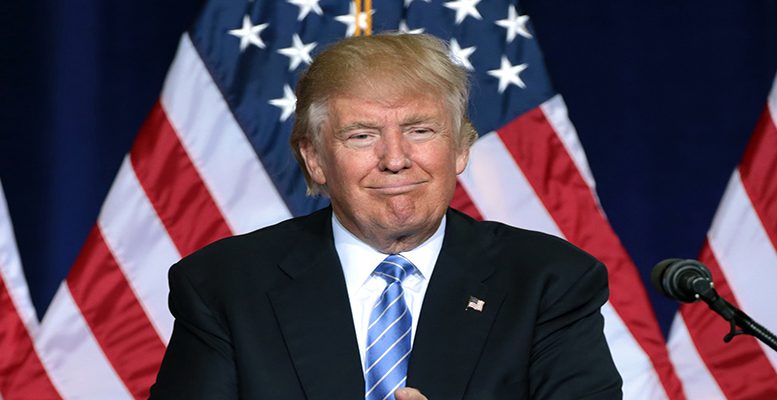After eight years of complaining about the presumed interventionism of Obama’s government, US companies (and those with presence in that country, such as Honda and Toyota) are discovering what it is like to live with a president who directly criticises on Twitter every investment they make.
The fact that Donald Trump is clearly interfering with corporate liberty, and doesn’t even wait to be sworn in to do that, while at the same time keeping control of the 500 enterprises in his name (for which he has gone to court at least 3,500 times, according to public documents), reveals what the next four years in the US are going to be like. It also flags up a very serious threat from its president: the destruction of institutions’ independence.
‘Crony Capitalism’
Political risk consultants are already cashing in before anything begins to happen, from pure panic on the part of economic agents in the face of the new US government. An economist and trader with more than 20 years experience in hedge funds, investment banks, think tanks and multilateral organisations defines this new government very concisely: “The US has been transformed into an emerging market: it is going to throw all the Mexicans out and import all the customs and practices of Mexican politics in exchange.” So far, and in the purest style of the “crony capitalism” found in Asia and Latin America, which we have criticised so much, the Kuwaiti embassy in Washington has transferred its national day celebrations from the Four Seasons hotel to Donald Trump’s new hotel in the US capital.
This is one of the battles which is going to be waged in the coming years in Washington: the battle between those in political power and the bureacracies they run. Rex Tillerson, the future Secretary of State and up to now Chairman and CEO of Exxon Mobil, the second biggest private oil Company in the world, doesn’t know how Washington works. Neither does Wilbur Ross, the Trade Secretary. Not to mention John Munchin, the Treasury Secretary. Or Jared Kushner, Trump’s son-in-law, who up to now is the most influential person in the president’s close circle. Not only do they have economic interests which could interfere with their jobs in the new government; but they have never worked in the Administration and, in many cases, have shown their contempt for it.
The majority of the analysis on what the US will be like with Trump has overlooked this risk. But it could bring serious consequences, although they won’t necessarily be visible. In terms of how a government functions, there is nothing more damaging than a war between technicians and the elected representatives. Whatsmore, it’s a war which the technicians tend to win because, like any good guerrilla fighter, they know the territory.
With the exception of the FBI, practically all the public organisations in Washington are against the new president. The few who up to now were somewhat well disposed toward him – the Armed Forces and the country’s 17 espionage agencies – have now distanced themselves from what they consider as a policy defined to limit their independence, use them politically and ignore them when it’s convenient, as was quite clear in the Russian “hacking” case.
One of the most obvious battles has already begun to be played out, in public: that of the Federal Reserve against the White House. The Fed didn’t even wait for the new president to be sworn in before sending out the message that it plans to tighten monetary policy more quickly due to Trump’s electoral programme and the “green light” which he is going to get from the Congress, controlled by the Republicans. It’s true that the fiscal policy of Trump and the Republicans in Congress is ultra-expansionary. But it is not less than Fed chairwoman Janet Yellen already made clear in December that both herself and her predecessor, Ben Bernanke, believe that fiscal stimulus is now unnecessary because the US already has full employment.
It’s true that during his campaign, Trump said that if he won he was not going to renew Janet Yellen in her post simply because she is a Democrat – a shocking violation of the Fed’s indepence.
By and for the camaras
The question is that Trump functions by and for the cameras and hasn’t taken in what the rule of law is. So you can’t ask him to have respect for regulations and institutions. It’s something which comes over very clearly in what is probably the best book about the president: ‘Trumped’, written by casino manager Jack O’Donnell and journalist James Rutherford. ‘Trumped’ has the advantage that it doesn’t try to explain the new president’s personality but, simply, his job as a gambling empresario in Atlantic City, located some 150 kilometres south of New York. The State of New Jersey tried without success to revive the city in the 1980s and 1990s, turning it into a kind of mini Las Vegas with the help of state subsidies.
From O’Donnell and Rutherford’s tale, we find out that the business model of the man who will now be the US president is based on ego and mixing his personal life (for example, the wish to have his then wife, Ivana, out of New York, first, and entertain his lover and future wife, Marla Maples, after) with his business activities.
With examples like this, it’s not really surprising that Trump dedicates his time to drawing attention on Twitter to companies like General Motors, Ford or Mondelez for offshoring jobs, or like Boeing and Lockheed Martin for what they charge the State for their public contracts. What is astonishing is that companies take notice of him. And that their stock market value goes up or down as much as 2% depending on these ‘tweets’. As a businessman, Donald Trump would get zero points for corporate governance. As president, it doesn’t look as if he is going to change.





